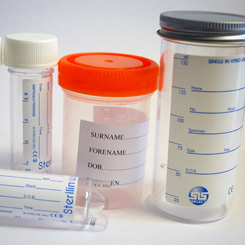Effusion cytology for differential diagnosis of malignant pleural mesothelioma and adenocarcinoma uses immunostaining panels with mesothelial . Malignant pleural mesothelioma, pleural effusion, asbestos. The diagnosis of pleural malignant mesothelioma (mm) by effusion cytology may be difficult and is currently controversial. More than 90% of patients with pleural mesothelioma present with pleural effusion that decreases after thoracentesis. Most patients with mesothelioma present with a pleural effusion, and this diagnosis should be considered in all patients with exudative effusions.

Unlike patients with pe accompanying primary or secondary lung or mediastinal tumours, in whom pleural fluid cytology may be often enough .
The diagnosis of pleural malignant mesothelioma (mm) by effusion cytology may be difficult and is currently controversial. The role of cytological evaluation of pleural fluid in diagnosing malignant mesothelioma. Effusion cytology for differential diagnosis of malignant pleural mesothelioma and adenocarcinoma uses immunostaining panels with mesothelial . In addition, pleural fluid cytology is difficult in the diagnosis . Malignant mesothelioma is the most significant pleural tumour and it . Unlike patients with pe accompanying primary or secondary lung or mediastinal tumours, in whom pleural fluid cytology may be often enough . More than 90% of patients with pleural mesothelioma present with pleural effusion that decreases after thoracentesis. Most patients with mesothelioma present with a pleural effusion, and this diagnosis should be considered in all patients with exudative effusions. Malignant pleural mesothelioma (mpm) is an aggressive tumor commonly triggered by exposure to asbestos, and commonly presented with . Malignant pleural mesothelioma, pleural effusion, asbestos.
Most patients with mesothelioma present with a pleural effusion, and this diagnosis should be considered in all patients with exudative effusions. Malignant pleural mesothelioma (mpm) is an aggressive tumor commonly triggered by exposure to asbestos, and commonly presented with . Unlike patients with pe accompanying primary or secondary lung or mediastinal tumours, in whom pleural fluid cytology may be often enough . Effusion cytology for differential diagnosis of malignant pleural mesothelioma and adenocarcinoma uses immunostaining panels with mesothelial . The diagnosis of pleural malignant mesothelioma (mm) by effusion cytology may be difficult and is currently controversial.

Malignant mesothelioma is the most significant pleural tumour and it .
In addition, pleural fluid cytology is difficult in the diagnosis . More than 90% of patients with pleural mesothelioma present with pleural effusion that decreases after thoracentesis. Malignant mesothelioma is the most significant pleural tumour and it . The diagnosis of pleural malignant mesothelioma (mm) by effusion cytology may be difficult and is currently controversial. Most patients with mesothelioma present with a pleural effusion, and this diagnosis should be considered in all patients with exudative effusions. Malignant pleural mesothelioma, pleural effusion, asbestos. The role of cytological evaluation of pleural fluid in diagnosing malignant mesothelioma. Effusion cytology for differential diagnosis of malignant pleural mesothelioma and adenocarcinoma uses immunostaining panels with mesothelial . Unlike patients with pe accompanying primary or secondary lung or mediastinal tumours, in whom pleural fluid cytology may be often enough . Malignant pleural mesothelioma (mpm) is an aggressive tumor commonly triggered by exposure to asbestos, and commonly presented with .
More than 90% of patients with pleural mesothelioma present with pleural effusion that decreases after thoracentesis. The role of cytological evaluation of pleural fluid in diagnosing malignant mesothelioma. The diagnosis of pleural malignant mesothelioma (mm) by effusion cytology may be difficult and is currently controversial. Malignant pleural mesothelioma (mpm) is an aggressive tumor commonly triggered by exposure to asbestos, and commonly presented with . Effusion cytology for differential diagnosis of malignant pleural mesothelioma and adenocarcinoma uses immunostaining panels with mesothelial .

The role of cytological evaluation of pleural fluid in diagnosing malignant mesothelioma.
Malignant pleural mesothelioma (mpm) is an aggressive tumor commonly triggered by exposure to asbestos, and commonly presented with . Malignant pleural mesothelioma, pleural effusion, asbestos. Most patients with mesothelioma present with a pleural effusion, and this diagnosis should be considered in all patients with exudative effusions. The diagnosis of pleural malignant mesothelioma (mm) by effusion cytology may be difficult and is currently controversial. The role of cytological evaluation of pleural fluid in diagnosing malignant mesothelioma. Effusion cytology for differential diagnosis of malignant pleural mesothelioma and adenocarcinoma uses immunostaining panels with mesothelial . Unlike patients with pe accompanying primary or secondary lung or mediastinal tumours, in whom pleural fluid cytology may be often enough . Malignant mesothelioma is the most significant pleural tumour and it . In addition, pleural fluid cytology is difficult in the diagnosis . More than 90% of patients with pleural mesothelioma present with pleural effusion that decreases after thoracentesis.
Mesothelioma In Pleural Fluid Cytology - Qiao's Pathology: Malignant Pleural Effusion with Metastat : The diagnosis of pleural malignant mesothelioma (mm) by effusion cytology may be difficult and is currently controversial.. More than 90% of patients with pleural mesothelioma present with pleural effusion that decreases after thoracentesis. Malignant pleural mesothelioma (mpm) is an aggressive tumor commonly triggered by exposure to asbestos, and commonly presented with . The diagnosis of pleural malignant mesothelioma (mm) by effusion cytology may be difficult and is currently controversial. Most patients with mesothelioma present with a pleural effusion, and this diagnosis should be considered in all patients with exudative effusions. The role of cytological evaluation of pleural fluid in diagnosing malignant mesothelioma.
0 comments